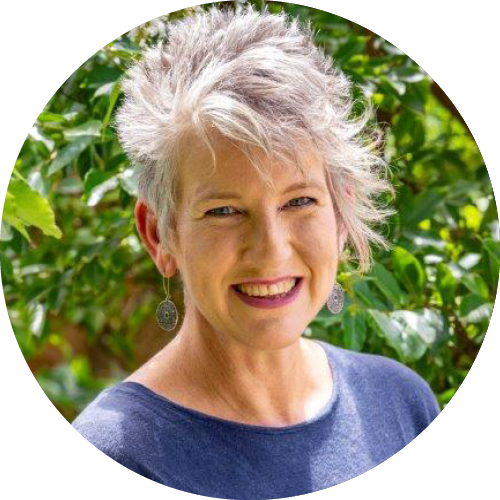
Sophie Thomson
Sophie Thomson is a horticulturalist, author and media personality. She has presented on ABC’s Gardening Australia for over 20 years, delivered extensive information and engagement through ABC Adelaide talkback radio and been involved in a variety of other forums such as national magazines, newspaper columns and social media. As a popular national multimedia personality, TEDx presenter and speaker, she enjoys face to face contact with people as she feels our future, and the planet’s future, depend on all of us pulling together and doing the right thing. Sophie is passionate about the role gardening can play in people’s lives to improve their mental and physical wellbeing. Recent natural disasters such as floods, bushfires, drought and the pandemic have seen her guidance in educating and helping people address the issues of food security and community. Sophie has worked tirelessly over the last 4 years to support the bushfire ravaged gardening community on Kangaroo Island by educating and inspiring locals to rebuild their own and extend community gardens. She has also assisted bushfire communities in the Adelaide Hills and is currently working in support of flood challenged communities in South Australia and interstate.
Sophie is ambassador, patron, and board member of many organisations including Friends of the Waite Arboretum, TreeNet Advisory Board and the South Australia Botanic Gardens and Herbarium. She has been widely recognised for her work, most recently winning the 2024 South Australian Inspiring Woman of the Year Award. Previously, Sophie won the South Australian Women’s Honors Roll in 2023, the Pelzer Environmental Prize in 2022 and was named one of the Top 50 Influencers in the SA Environment Sector by the Adelaide Advertiser in 2021.
Sophie believes that ‘gardening provides some of the solutions to life’s challenges, reduces stress, teaches us resilience, care of our environment and gives us great pleasure and rewards when we see what we can achieve through our endeavours’. We are delighted that Sophie can join us to reflect on how geographical futures can be navigated via our connection to nature.
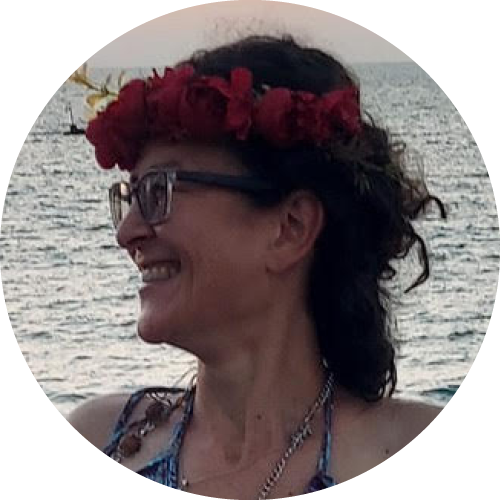
Irus Braverman | State University of New York
Irus Braverman is professor of law, adjunct professor of geography, and research professor of environment and sustainability at the State University of New York at Buffalo. Her books include Zooland: The Institution of Captivity (2012), Coral Whisperers: Scientists on the Brink (2018) and Settling Nature: The Conservation Regime in Palestine-Israel (2023).
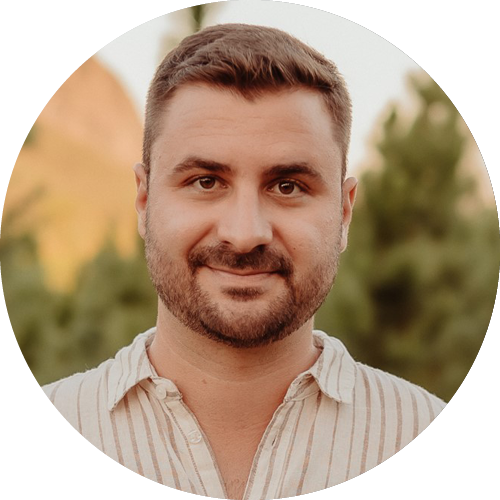
Rafael Azeredo | The University of Queensland
Rafael is a Social Science ECR whose research draws on Human Geography, Sociology of Migration, and International Studies. He is a Postdoctoral Research Fellow at the Centre for Policy Futures at the University of Queensland.
As part of his doctoral research, Rafael looked at the immigration landscape in Australia through a critical temporalities lens. Rafael utilised ethnographic methods to explore how first-generation migrants navigate and respond to temporally restrictive migration regimes. His research provides a critical approach to temporary migration in Australia, exploring the inconsistencies between temporariness de facto and de jure and how migrants ‘enact permanence’ in a context of imposed temporariness.
Rafael’s recent publications have been featured in journals such as Population Space and Place, Journal of Intercultural Studies and International Journal of Cross Cultural Management. Rafael has experience working on ARC-funded projects in human geography, migration and labour. Recently, he has been involved in an ARC Discovery project that looks into Global Production Networks in multifunctional rural landscapes of Australia from the perspectives of land, labour and environment.
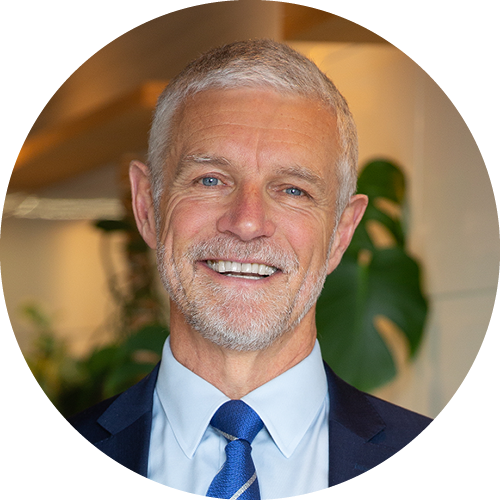
Wiley Keynote
Professor Iain Hay | Flinders University
Iain Hay is Distinguished Emeritus Professor of Geography at Flinders University, inaugural Director of the Royal Geographical Society, and Chair of the Australian Academy of Science’s National Committee for Geographical Sciences. Iain has made exceptional contributions to the advancement of Australian and international geography through his research, teaching, and leadership. Specifically, he has held leadership positions at institutional, state, national and international levels, including as foundation Dean (Education) of the College of Humanities, Arts and Social Sciences at Flinders University; Australian Learning and Teaching Council Discipline Scholar for the Humanities, Arts and Social Sciences; President of the Institute of Australian Geographers; and (First) Vice President of the International Geographical Union. Iain has published extensively in the fields of economic, cultural and social geography, inequality and geographies of the super-rich as well as geography education and research methods, including Qualitative Research Methods in Human Geography, which has become a major international textbook in the field. Iain is currently on the Editorial Boards of numerous journals including ACME; Erdkunde; Journal of Geography in Higher Education; and Norsk Geografisk Tidsskrift (Norwegian Journal of Geography). He has edited – and founded – influential journals throughout his career including Ethics, Place and Environment and Geographical Research. His remarkable and ongoing contributions have been recognised through significant national and international awards, including the Prime Minister’s Award for Australian University Teacher of the Year; RGS/IBG Taylor & Francis Award; New Zealand Distinguished Geographer Medal; Fellowship of the UK’s Academy of Social Sciences; AAG’s Gilbert Grosvenor Geographic Education Honours; and a rare Fellowship of the American Association of Geographers.
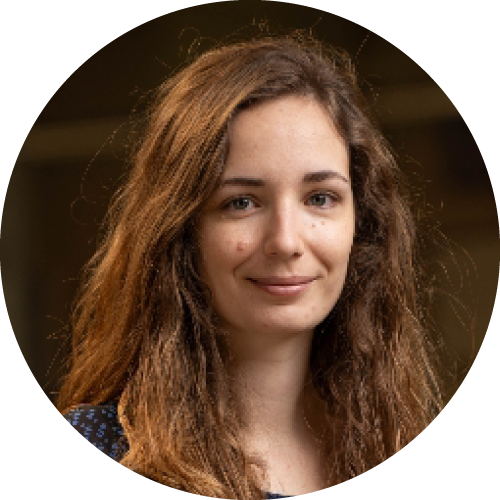
Fay Gale Keynote
Dr Ariane Gienger | University of Adelaide
Dr. Ariane Gienger is a keen and talented early career geographer at the University of Adelaide, where she completed a bachelor’s degree in international development in 2018 and a doctorate in human geography in 2023. Her research, commended by reviewers as outstanding, has made a unique and discrete contribution to knowledge in the fields of co-management and reconciliation. Specifically, she focusses on the ways in which the two do and could interconnect to help avoid mutual harm and drive their transformations by rendering existing limitations more visible. She explores how interconnected crises require equally interconnected solutions and makes the case for holistic solutions that are situated within their unique geographical contexts. Over the last four years, Ariane has further built her expertise working as researcher on a range of projects in the fields of urban climate change adaptation, human/nature connection, eco-anxiety and tertiary sustainability education – with a particular focus on the importance of knowledge diversity in these spaces. She currently works as a post-doctoral scholar on a Future Fellowship that investigates the ways in which Indigenous and Western knowledge systems can co-exist in environmental management, policy and governance.
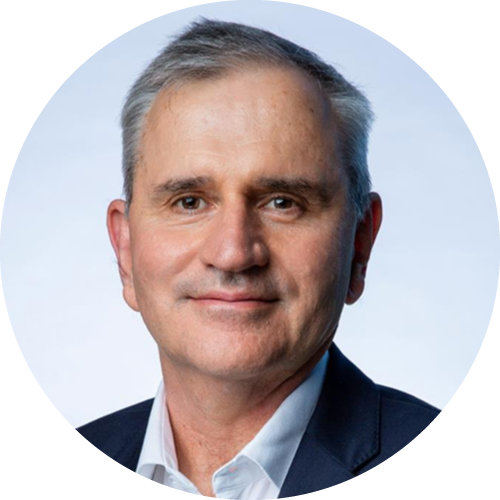
RGSSA Brock Lecture
Professor Andrew Beer | University of South Australia
Andrew Beer is the Executive Dean of UniSA Business. He comes to this role after working previously as the Dean of Research and Innovation, at the UniSA Business School. Prior to commencing with UniSA in 2016, Andrew worked at The University of Adelaide and Flinders University. He holds a Bachelor of Arts from the University of Adelaide and a PhD from the Australian National University.
Professor Beer has served as a Research Fellow at the University of Plymouth, a Leverhulme Fellow at the University of Ulster, and a Visiting Professor at the University of North Texas. He was the Chair of the South Australian Government’s Homelessness Strategic Group from 2011 to 2017 and is a Fellow of the Regional Australia Institute. He served on the College of Experts for the Australian Research Council and is a Fellow of the UK’s Academy of Social Sciences. Professor Beer was Chair of the Regional Studies Association from November 2013 to November 2017.
His research interests include the operation and functioning of Australia’s housing markets (including the provision of housing for persons with a disability), the drivers of regional growth, structural change within the economy, and the impacts of an ageing population. He is currently undertaking research in four major areas: the outcomes of the closure of the Australian automotive industry; the cross-national analysis of the leadership of places; the quality and condition of Australia's housing stock; and the use of services and housing by Australia's ageing population. Currently, he is collaborating with Professor Markku Sotarauta of Tampere University, Finland as a joint editor on the Handbook of City and Regional Leadership (Edward Elgar) and is in the process of completing a Policy Expo for the Regional Studies Association on place-based policy.

Professor Tim Smith | Lincoln University, Aotearoa New Zeland
Professor Tim Smith FIAG, is the Dean of the Faculty of Environment, Society and Design at Te Whare Wānaka o Aoraki | Lincoln University, Aotearoa New Zealand. He is also an Emeritus Professor at the University of the Sunshine Coast, Australia; an Adjunct Professor at Brock University, Canada; and a Senior Research Associate at Uppsala University, Sweden.
Tim is a human geographer with expertise in coastal management, water security, and climate change adaptation. His research is particularly focused on vulnerability and adaptation. The outcomes of his research support the achievement of sustainable livelihoods in multiple countries.
Tim was previously an Australian Research Council Future Fellow; Executive Dean of the Faculty of Arts, Business and Law; and inaugural Director of the Sustainability Research Centre at the University of the Sunshine Coast. Apart from other academic appointments, he has worked at the CSIRO and in government.
Tim was awarded an Australian Museum Eureka Prize for work on ‘innovative solutions to climate change’. He was formerly co-Chair of Future Earth Australia and a member of the Australian Research Council College of Experts. He is currently co-Chair of Future Earth Coasts, on the Editorial Board of Geographical Research, and the Executive Editor of Ocean & Coastal Management.

